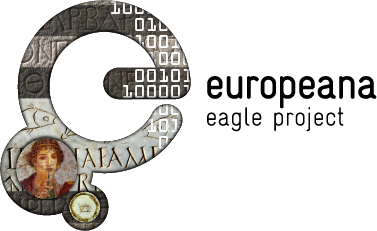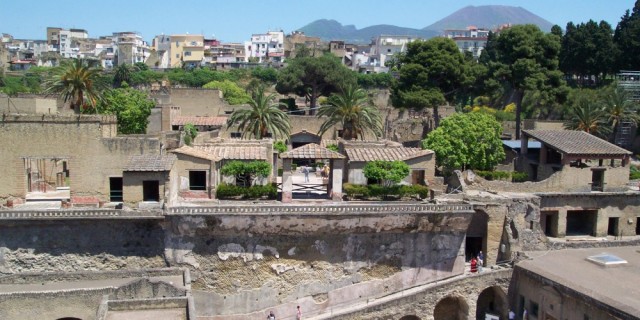The Herculaneum Graffiti Project
Call for Participants:
The Herculaneum Graffiti Project
2014 Field Season
The Herculaneum Graffiti Project invites participants to take part in its inaugural field season, which will take place June 18-27, 2014. The project aims to record and study the ancient handwritten inscriptions from the site of Herculaneum.
To apply: Please fill out the online application form.
This field school, as part of the Herculaneum Graffiti Project, is a contributing partner to a major initiative of the European Union (EAGLE Europeana) to document and make cultural heritage more broadly accessible. Participants will also directly contribute to the Epigraphic Database Roma. Guest lectures on the art and architecture of Herculaneum will be provided by archaeologists and conservators of the Herculaneum Conservation Project.
Participants should have a working knowledge of Latin. The language of instruction is English.
Learn:
– about ancient city planning
– how to locate, measure, and digitize ancient inscriptions
– recording and advanced photography techniques
Work on-site within the taverns, shops, and homes of ancient Herculaneum. Contribute to the digital preservation of an exceptional corpus of ancient handwritten inscriptions.
This workshop has been granted the patronage of the International Association of Greek and Latin Epigraphy (AIEGL).
Dates of the project: June 18-27, 2014.
(Arrival Wednesday, June 18; departure Friday, June 27)
Accommodation: Lodging will be provided in a 4-star hotel in Ercolano, a few blocks from the site. Logistics are organized by the Herculaneum Study Centre.
Program fees:
1300 Euros – includes all meals and accommodation in a single room, or
1000 Euros – includes all meals and shared accommodation in a triple room
(Both options cover entry to the archaeological site, wifi access, a one-day trip to Pompeii, and guest lectures.)
Program fees do not include the cost of transportation to Ercolano. Participants may also choose to purchase travel insurance.
Application deadline: April 5, 2014
Program Description:
This unique program of archaeological fieldwork, directed by Professor Rebecca Benefiel (Washington & Lee University), has a specific focus on ancient wall-inscriptions. Participants will work with handwritten, primary evidence of the first century AD, while collaborating with international partners, and will contribute to a comprehensive database that makes these writings available to a broader public. The main objective of the field school is to train participants to work with wall-inscriptions at Herculaneum, which are often small and faint, difficult to find and decipher, and tricky to capture in a photograph. They will learn on-site how to detect and decode, measure and photograph these inscriptions with special equipment. Participants will also make direct contributions to EAGLE, the Electronic Archives of Greek and Latin Epigraphy, a large-scale project to make epigraphic material available to the broader public.
The work involved is collaborative, interdisciplinary, and needed. Participants will be working in teams comprising Americans and Europeans, faculty, graduate students, and advanced undergraduates, to understand the archaeology and the social context of this popular type of writing. The interdisciplinary nature of the material provides perspectives onto family structure, religion, the economy, and the nature of the Roman house, and insights onto the realities of spoken versus written language. And it is crucial. Handwritten documents from classical antiquity are found in three main locations: on wooden tablets in Britain, near Hadrian’s Wall; among the papyri of Egypt; and on the walls of Pompeii and Herculaneum. It is easier to protect papyri and wooden tablets by moving them to a climate-controlled environment, while the wall-plaster that holds or once held these writings is a fragile surface constantly exposed to the elements. By documenting these writings now with non-invasive techniques, we aim to save and preserve as much as possible and to provide access to this material to a wide network of researchers and students.

